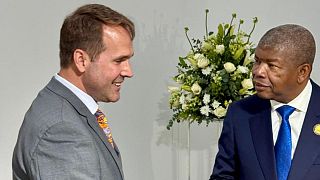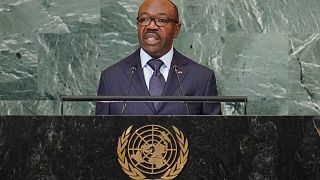Angola
Africa's megacities are set back by a lack of modern infrastructure. From Lagos to Kinshasa, Luanda to Abidjan, the demand for bigger roads, metros, bus systems, and bridges far outweighs the investment.
The United Nations recommends that by 2030 countries implement solutions for sustainable urban growth whose mobility is more environmentally friendly.
To achieve this goal, Angola intends to launch a surface metro for its capital, Luanda.
"[This is] a project of great contribution, to ensure, exactly, that both communities and cities healthier, and also, from the point of view of infrastructure, to bring innovation to our city by solving a major difficulty that is urban mobility," said transport minister Ricardo de Abreu in Luanda.
German transportation company Siemens Mobility will build the light rail under a Public-Private Partnership.
It is estimated to cover a distance of 149 km at a cost of around 3.5 billion dollars.
Luanda, the capital of oil-rich Angola houses 8 million people. The figure is expected to surge to 12 million people by 2030.
The German government has pledged to help Siemens secure financing for the project.
Luanda is one of Africa's biggest cities. And traffic gridlocks are common due to a lack of a modern public transportation system.












01:35
UN and Haitian officials mark one year since Kenyan police arrived to support security efforts
01:42
Gaza residents welcome rare organized aid delivery after months of chaos and hunger
01:50
UN urges renewed political and climate action in Libya amid humanitarian and governance crises
00:58
Cash crunch stalls UN probe into possible war crimes in DR Congo
01:37
South Africa calls for peaceful resolution to Israel-Iran conflict
01:03
United Nations harnesses power of music for peace in South Sudan